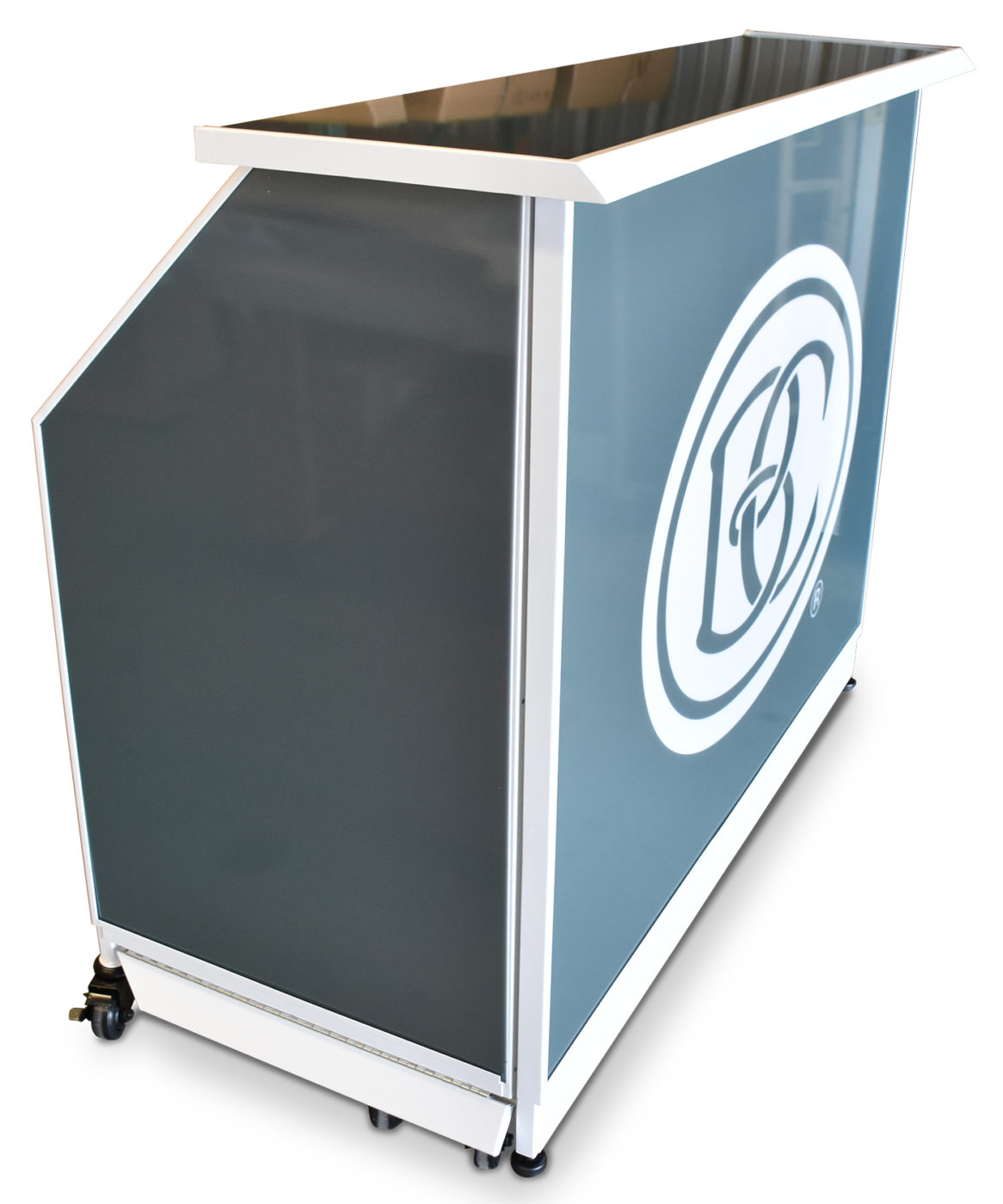 Ever been burned and lost money on alcohol at a wedding or event? There are a number of different ways to price an event bar but it can be tricky to do it in a way that makes the host or planner happy and while still being profitable for the event bar.
Ever been burned and lost money on alcohol at a wedding or event? There are a number of different ways to price an event bar but it can be tricky to do it in a way that makes the host or planner happy and while still being profitable for the event bar.
You want to make sure that the host feels like he’s getting a fair deal without sacrificing your own profit. Just as importantly, though rarely considered by the host, the options available at the bar can make a significant impact on how the event unfolds and how the host or planner feels afterwards.
If the drinks flow a little too freely, the event can get out of hand, particularly in the mind of a more conservative host. If they don’t flow or are too expensive for a crowd that’s ready to get down, it can put a damper on the whole event and leave the host unhappy with how it turned out.
Whether you’re a planner, caterer or bartender, you have to make sure to strike a balance between satisfying the host’s needs, making the party a success, and making money.
We’ll cover some of the pricing options available to you and advantages and disadvantages.
Cash Bar
A cash bar is where attendees buy their own drinks for a set price as they would at any commercial bar. Cash bars are the easiest for controlling costs for the host and determining profits for the event bar service since you’ll know exactly how much was consumed. No estimating involved.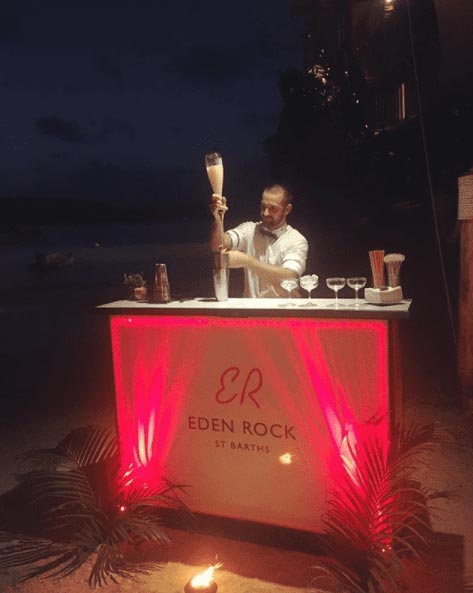
Cash bars are usually most appropriate at events where the alcohol or bar is not a primary concern or when controlling closely costs. Some people consider it poor etiquette to have a cash bars at some events like weddings and certain types of corporate events or conferences so it’s important to know the audience and how they’ll perceive it. In the end though, it’s up to the person writing the check to decide what’s most appropriate for them.
Cash Bar Logistics
You can manage a cash bar either by having the attendees pay the bartender directly or having a cashier set-up to sell tickets which are then collected by the bartender.
The main issues to consider are how much you trust your bartenders and the size of the event.
If you don’t have a trusted cashier set-up, it’s a lot easier for bartenders to steal or skim off the top. Even if you manage the bar yourself or trust the bartenders, paying directly at the bar slows down service. At large events, it’s best to use a cashier to manage the flow of people to and from the bar area.
However, at a small event where you trust the bartenders, having the guests pay them directly is the easiest option.
Open Bar
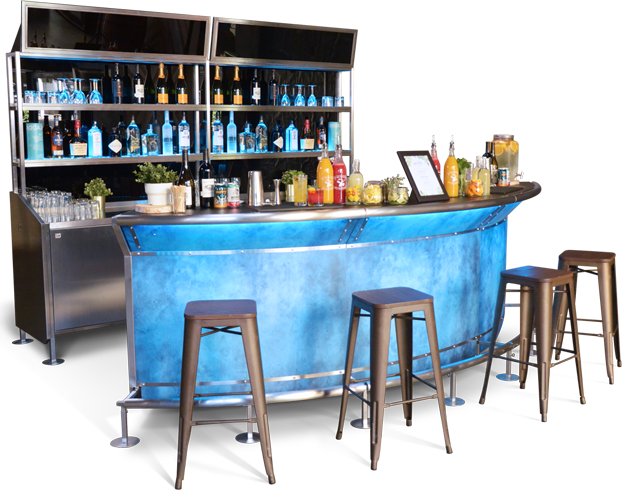 An open bar, also called a host bar, is where the host pays for all the drinks. Not surprisingly, this means people tend to order more drinks. Since attendees aren’t paying for drinks, they aren’t as concerned about abandoning them, forgetting them or having a few more than they would if they were paying themselves.
An open bar, also called a host bar, is where the host pays for all the drinks. Not surprisingly, this means people tend to order more drinks. Since attendees aren’t paying for drinks, they aren’t as concerned about abandoning them, forgetting them or having a few more than they would if they were paying themselves.
Open bars tend to get the party going and keep it going late into the night, but make it much more difficult to control costs. Let’s look at some pricing options and then we’ll talk about different ways to control costs from both the bars perspective and the hosts perspective.
Open Bar Pricing Options
Open bars are priced either by the hours, the bottle, the drink, or the person. If you’re running the event bar, you have to decide which pricing scheme works the best for yourself and the host.
By the drink is the most simple option. You ring up each drink at a predetermined price and then charge the host the total bill at the end of the event.
Charging by the bottle means taking inventory before and after. At the end of party, everything is added up and the
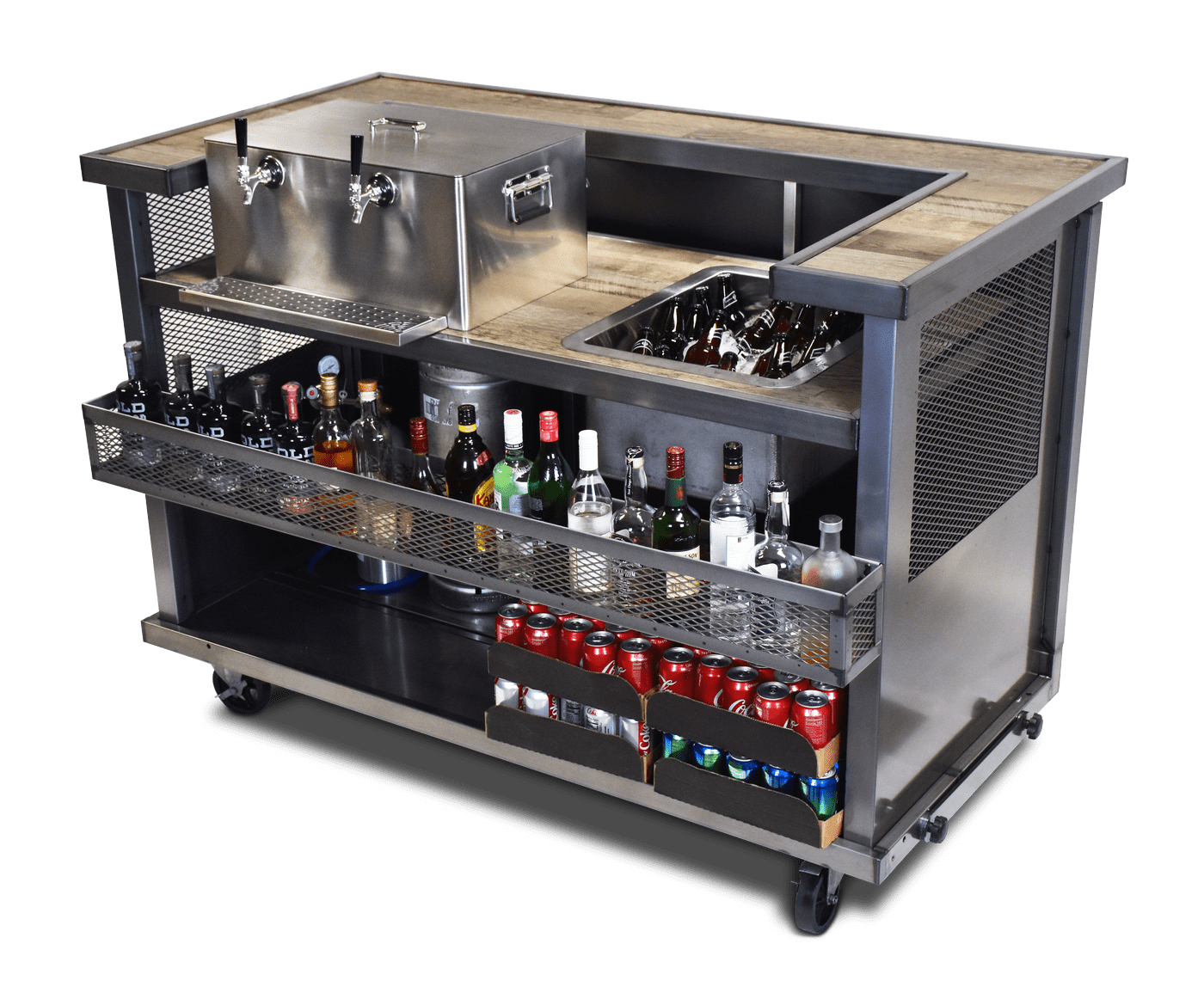
Rear View of a stocked Distressed Portable Bar with Jockey Box and Speedrail
host is charged a set fee for each opened bottle of liquor, wine and beer. Opened bottles that weren’t finished are left with host and can be used at an after-party or later date.
Per person/per hour pricing means you have established a cost per hour for keeping the bar open for one person for one hour.
The best way to estimate this yourself is to look at the typical cost of drinks in your area and estimate that your guests will have two drinks each the first hour and one drink per hour after that.
So for a four hour event reception, you’ll average 5 drinks/person. If a typical cocktail in your area is $6-7, you can quote $30-$35/person (5 drinks/person x $6-7).
If you’ll only be serving beer and wine, look at typical prices for beer and wine in your area and make the same calculation. If a beer is typically $4 and you’re hosting a four hour event bar, then $20/person is a reasonable quote.
From the bar’s perspective, it’s important to have an idea what kind of crowd you’ll be serving as well. If you think people are unlikely to take advantage of the open bar, you can afford to be bargained down some. If you’re working a frat party, you may want to aim higher on that scale.
It’s generally a nice courtesy to advise the host at the halfway point in the service of where they stand if you’re charging by the drink or by bottle. That way, if things are getting out of control, they have an option to adjust the rules and slow down consumption.
What to serve at an open event bar?
With an open bar, it’s important to very clearly establish what’s included. Shots or shooters are the most frequent potential source of problems. If a host is paying by the drink or by the bottle and tequila shots get popular then the bill can go up in a hurry. By the same token, if the event bar service is charging an hourly rate, shots can quickly destroy any profit in the event.
One effective way to control costs for the host at an open bar is by limiting the options available to guests. An open bar with top-shelf liquor is appropriate for some events, but it’s essential everyone’s aware of the cost involved.
For weddings and similar events where the host wants to have an open bar without spending a small fortune, you could choose to limit serving to wine and beer.
If you’d like to offer some other option for guests that don’t like wine or beer, choosing a specialty drink or two is a popular option. This could be something relevant to the theme of the event, like mint juleps at a Southern BBQ, or just something the hosts particularly like.
As we recommended before, the best way to handle this is by estimating that guests will consume 2 drinks each the first hour and one drink each hour after that. Then, multiply that number by the average cost of the drinks you’ll be serving in your local area.
That means if top shelf liquor is going to be served at a 3 hour event and the average price for a top shelf cocktail in your area is $8-10. You can estimate 4 drinks per person (2 for the first hour and 1 each subsequent hour) at $8-10/drink. That leaves you at about $32-$40 for a 3 hour open bar.
Event Bar Liability Issues? 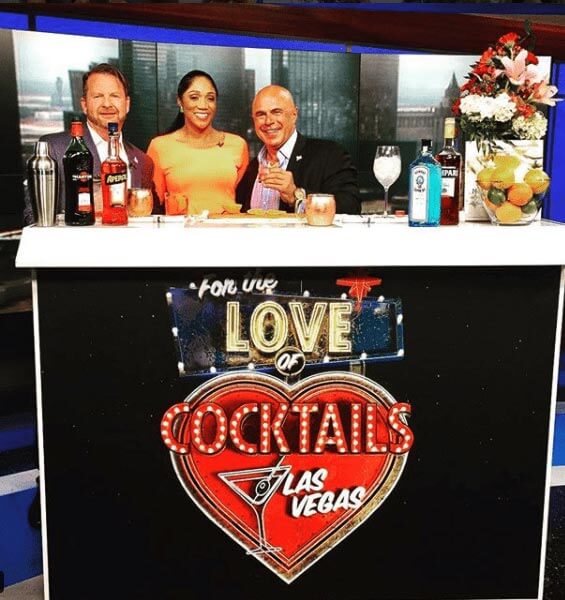
With an open bar, it’s also worth noting that more liability issues come into play since people are likely going to be consuming more. Have nonalcoholic drinks and food available to help slow down consumption and stunt alcohol absorption. Encouraging people to use designated drivers or, when possible, offering a shuttle service are good options as well.
Combination Bar
A combination bar is a combination of an open and a cash bar. Combination bars are good choices for hosts that want to treat their guests, but want to control costs or liability by making sure nothing gets out of hand. There are a few different ways to handle a combination bar.
By Time
In this scenario, the event bar is treated as an open bar for a set period of time (usually an hour or two) and then it goes back to a cash bar. This makes it easier to control costs for all parties and still gives the guests plenty of options. This is best used when you expect that the attendees will be fairly responsible as there is the potential to abuse this by people drinking as much as possible in the allotted time period to avoid buying drinks when it the event bar reverts to cash.
By Tickets
Alternatively, you could give out a set number of tickets to each attendee and transition to a cash bar once all the tickets are used. This is an another way for the host to control cost and is much more difficult to abuse then doing it by time. This works well for more corporate or professional events.
By Cost
This is where the host agrees to pay for all drinks up to X dollar amount and after that it reverts to a cash bar. This lets costs be controlled very strictly but still lets the host treat the guests and get the party going.
Industry-Leading Quality Event Bars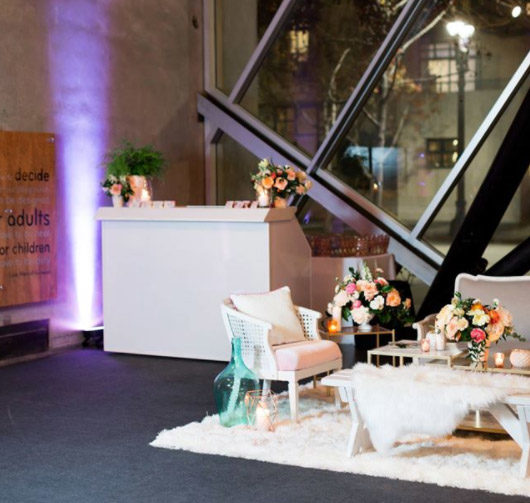
Our Event bars are designed to add style and pop to any type of event from weddings to corporate conference after parties. Make a lasting impression with our standard portable bar or professional portable bar.